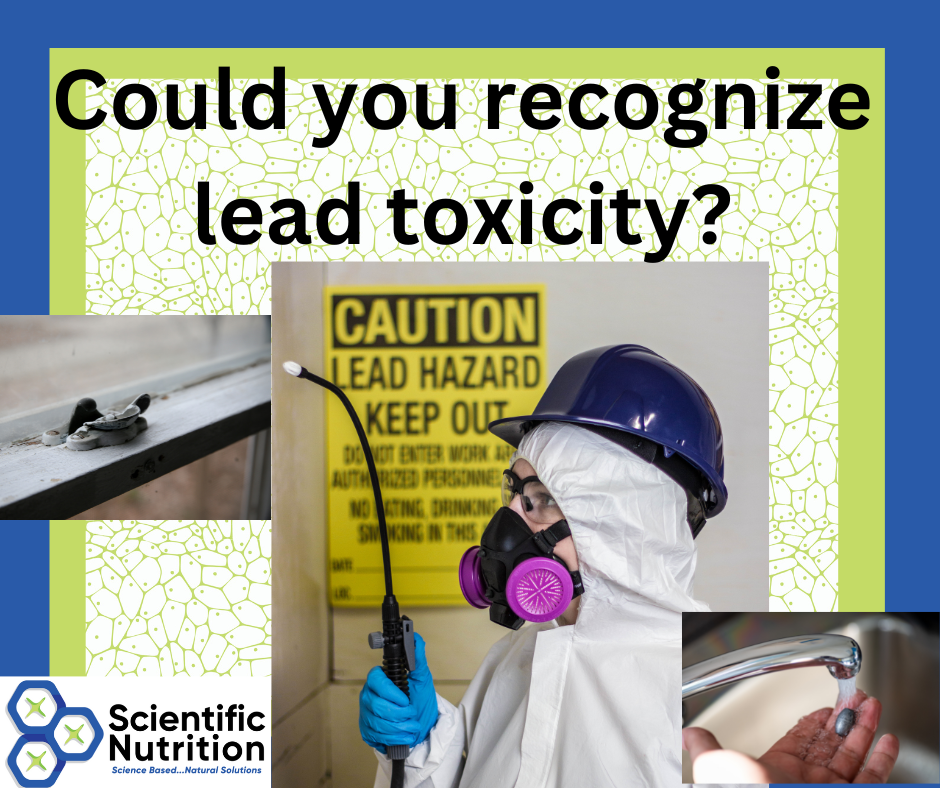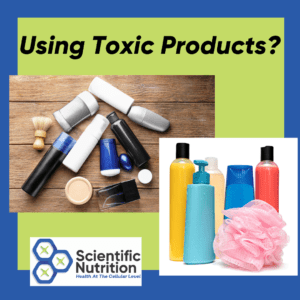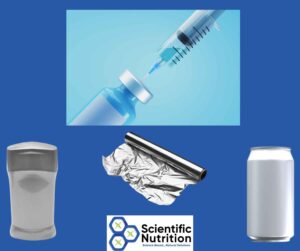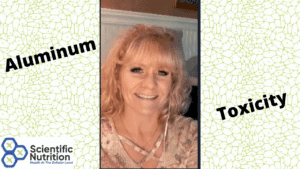Do you need help recalling or remembering information often?
It may not be related to age. You may feel tired, weak, or have pain in your body without apparent reasons. Maybe your mood swings; you feel exhausted, anxious, and depressed. It may be linked to lead toxicity.
An average person frequently has one or all of of these problems simultaneously. Among many other reasons, one of the reasons is lead toxicity or lead poisoning. In this 4-minutes read, you will discover lead toxicity and its effects on your mental, physical, and emotional health.
As a bonus, you will also learn about some prevention and proven methods to tackle lead toxicity.
For the sake of a healthier and happier life, Read on!
Lead Toxicity and its Harmful Impacts on Health
Imagine a substance that can seep into your body through the air you breathe, the water you drink, and even the surfaces you touch. That’s lead, and it’s a toxic substance that can have severe impacts on our health.
Why is lead everywhere?
Lead is a heavy metal that was once widely used in everyday items, from paint to gasoline to plumbing. Although its use has been significantly reduced in recent years, lead still poses a significant threat to your health and well-being.
According to a study conducted by WHO, toxic lead elements can be found in our brains, liver, and kidneys. It even builds up over time in our teeth and bones.
Lead is dangerous for people of all ages and genders, but it is terrifying for pregnant women. Lead stored in the bones is released into the bloodstream when a woman is pregnant. This puts the unborn baby in danger or even increases the risk of miscarriage as it sees the fetus as another organ to deposit the toxic lead.
Lead exposure is never safe; even small amounts of lead worsen problems. To figure out how much lead people are exposed to, doctors measure how much lead is in their blood. Scientific Nutrition conducts a test called a Hair Mineral Analysis to measure and analyze lead toxicity as well as it’s adverse affects on your body.
Some sources include lead-based paint, pesticides, hair dyes, colored inks, glaze on ceramic dishes, lipsticks, manufacturing of batteries, smelting industries, cigarette smoke, food cans soldered with lead, or tainted water (especially from wells with lead-soldered pipes).
So, it’s time to understand the various ways lead can affect your health so that you can take steps to reduce your exposure and seek help if necessary. Buckle up and uncover the power of knowledge, so you can arm yourself against the harmful effects of lead!
Mental Effect of Lead Toxicity
Your mind is like a CPU (central processing unit) for all activities. Just like a computer may have a software error or virus that causes it to slow down or not function properly, your brain can also experience disruptions due to lead toxicity that impact your mental health.
Several scientific studies show that Lead impacts the brain’s functioning and people’s behavior. For instance;
1. Lead Toxicity can decrease cognitive function
According to a journal in Environmental Health Perspective, even low levels of lead exposure are associated with decreased cognitive function. That means that it affects your reasoning power, problem-solving skills, and attention and focus span.
Lead Toxicity affects mental and cognitive development more in children than adults because:
- Children’s brains are still developing and, therefore, more vulnerable to toxic substances.
- Children have a higher intake of Lead per body weight compared to adults.
2. Lead Toxicity can lead to short-term memory loss and low IQ level
Lead Toxicity is like a sneaky thief; it steals away your cognitive abilities and leaves you with a lower IQ. The damage to children can overlap with behaviors linked to ADHD or Learning Disabilities.
There are many scientific studies that claim that lead exposure affects how your mind processes information, short-term memory loss, and how it stores memories if at all. This can also make it difficult to recall recent events or retain new information.
Physical Effect of Lead Toxicity
Lead poisoning is like a silent assailant that creeps into your body, disrupting its functions without you even realizing it. Exposure to lead can make you feel sick and harm your overall health and well-being. As a result, it can become challenging to carry out daily tasks. It will also impact the quality of life negatively.
Some of the significant symptoms and impacts are;
1. Vomiting and Stomach Pain
The toxic Lead is harmful to your health and causes digestive issues. According to a journal published in PubMed in 2016, states that stomach pain, diarrhea, constipation, nausea, and vomiting can all be signs of lead poisoning in the GI tract. Exposure to a lot of lead can also cause more severe health problems like anemia, encephalopathy, and nephropathy.
2. Weakness and Muscle Pain
Lead Toxicity can leave you feeling weak, tired, and achy making even simple, everyday things hard to do. That’s because lead can stop your muscles and nervous system from working as they should.
When lead enters your bloodstream, it goes to different parts of your body, like your muscles, where it can hurt and cause inflammation. The interruption of the flow of energy may cause physical issues that even a chiropractor can pick up on.
Emotional Effect of Lead Toxicity
Your emotional health is the key to your overall health and happiness. When your emotional health is strong, you can deal with life’s problems, stress, make deeper connections with others, and have a positive outlook on life.
But when your emotional health is poor, it’s like a crack in the foundation. This emotionally weakened state can lead to several mental health problems, such as;
1. Mood swings and loss of interest in daily activities
Think of lead toxicity as a dark cloud that hangs over your head and makes it hard for you to see the positive aspects of your life. It can make you feel frustrated, bored, and unappreciated in things that used to make you happy. When the exposure is too much, you will lose interest in everyday things, become less motivated, and no longer enjoy life’s simple pleasures.
2. Depression and anxiety
Lead exposure is significantly linked to brain alterations, specifically by affecting the chemical processes that regulate feelings and moods. These processes are known as catecholaminergic systems and play an essential part in mental health maintenance. Disruptions in these systems can cause bouts of depression and raise the risk of developing anxiety disorders.
This means that lead exposure can make you feel depression, hopelessness, apprehensive, and agitation, even if there is no evident cause for these sensations. The neurotransmitters are compromised so the hormones dopamine and adrenaline are lacking. High blood pressure, chest pain, anxiety, headaches, profuse sweating, and heart palpitations may follow.
Prevention and Precautions from Lead Exposure
So far you have learned the adverse consequences of lead toxicity and its exposure to your body. Although the abundant exposure of Lead is because of the rapid progress of humans in the modern world, lead is also a natural metal present in earth’s crust.
Scary but there is hope, the best methods to reduce your exposure to lead, and to detox naturally.
Here are some best prevention methods for adults to reduce lead exposure and Toxicity:
- Clean up lead dust with precaution: Regularly clean floors, windowsills, and other surfaces to remove lead dust. In the past there were horizontal blinds that created lead dust that are now outlawed but may still be hanging in some homes.
. - Use safe practices when working with lead: If you work with lead, follow safety procedures to minimize exposure and use detoxification modalities daily. As my client, I will walk you through them.
. - Wash your hands: Regularly wash your hands, especially before eating and after touching lead-containing products.
. - Use safe food and water sources: Use cold water for drinking and cooking, as hot water is more likely to contain lead according to the cdc.gov website. Avoid using canned goods or ceramics that may contain lead.
. - Test your home for lead: If you live in a house built before 1978, have it tested for lead-based paint and lead in the water. Do not try to remove it yourself. Painting over it may be best to eliminate lead dust.
. - Avoid traditional remedies: Some traditional remedies (specific plants or herbs) and cosmetic products may contain lead, so be cautious when using these products.
. - Get tested: If you suspect you have been exposed to lead, get tested. A simple Hair Analysis can determine if you have been exposed and if you need to take action to reduce your exposure. This is where I can help with detoxification methods and targeted supplementation.
Is your health the top priority?
Your health is the foundation of your life, take care of it, and it will take care of you . You know that your health is worth more than all the wealth in the world. Most times you can’t buy your way out of disease or illness.
To take the best care of your health, you must avoid what can be harmful. In this article, you learned just one of the major causes which can destroy your happy life. Lead toxicity is preventable so you can take wise action right now.
Hair analysis is the fastest, most natural, non-invasive way to show if you or your children have accumulated lead exposure. You can find out more about the test here and get the best guidance from an expert Nutritional Consultant.
LET’S CHAT about your health goals!
Copyright Scientific Nutrition, LLC 2023




